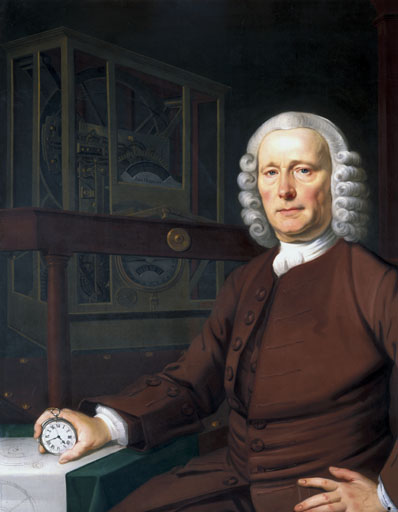Lord Rees, Astronomer Royal and Chair of the Longitude Prize 2014 Committee, blogs on the launch of the Longitude Prize 2014.
The prowess of the nation’s historic achievements in science and technology is displayed for all to see in the Science Museum – a cathedral to the history of science where visitors can share in the celebration. The Museum is unique in its ability to allow us to reflect on our past achievements, while also inspiring future generations to keep pushing forward the frontiers of science and technology.
I’m pleased to be involved in a new project that I also hope will inspire the next generation of British scientists. Developed and run by Nesta, with the Technology Strategy Board as a funding partner and launched this week on Horizon (Thursday 9pm, BBC2), the Longitude Prize 2014 will give innovators an incentive to grapple with a global problem and to produce a solution that will benefit humankind. Anyone who can find the solution will be rewarded with a multi-million pound prize.
The Longitude Prize 2014 is being launched on the 300th anniversary of the Longitude Act where the British government offered £20,000 to find a way for sailors to determine their Longitude at sea.
At that time seafaring vessels were vital to the booming economy of Britain, and to prevent massive loss of life from shipwrecks was a government priority. Many intriguing innovations were developed to ‘discover’ longitude. Eventually, the fund was awarded to John Harrison, for his Marine Chronometer.

Today, we live in a period of accelerated change as modern technology revolutionises every aspect of our daily lives: communications, travel and health. There are many challenges that we face both nationally and globally.
The new Longitude Prize gives the chance for everyone to express a view on which area deserves top priority and offers the greatest scope. We’ve identified six challenges for public consideration. Through a text and online vote, anyone can influence which of these six challenges will become the focus of the Longitude Prize 2014.
The Longitude Prize 2014 Challenges:
Water
Water is a finite resource and we must seek to find ways of producing more fresh water. Some 98% of the Earth’s water is too salty for drinking or agriculture and as water requirements grow and as our reserves shrink, many are turning to desalination. However the current desalination technology isn’t optimal for small-scale use.
Antibiotics
Antibiotics have changed the face of healthcare for the better; they on average add 20 years to over lives. 80 years on from the discovery of penicillin, we are still unable to distinguish bacterial from viral infections, or the type of bacteria in the clinic, which has caused the overuse of antibiotics and the evolution of multidrug-resistant strains of bacteria.
Dementia
An ageing population means more people are developing dementia and unfortunately there is currently no existing cure. This means there is a need to find ways to support a person’s dignity, physical and emotional wellbeing and extend their ability to live independently.
Paralysis
Paralysis can emerge from a number of different injuries, conditions and disorders and the effects can be devastating. Every day can be a challenge when mobility, bowel control, sexual function and respiration are lost or impaired. We need to find a way to vastly increase the freedom of movement for people with paralysis.
Food
The world’s population is growing, getting richer and moving to cities. Current estimates suggest that by 2050 there will be about 9 billion people on the planet; moreover our tastes will have turned to more resource-hungry foods such as meat and milk. In the face of limited resources and climate change, we must learn how to feed the world with less.
Flight
The rapid growth of carbon emissions caused by air travel needs to be addressed to help tackle climate change. The potential of zero-carbon flight has been demonstrated but it has had little impact on the carbon footprint of the aviation industry, which still relies exclusively on fossil fuels. We need to bring novel technologies into the mainstream to stimulate a significant change.
The Science Museum opens the world of science and technology to everyone. I hope that the Longitude Prize 2014 will stimulate wide interest, as well as encouraging inventors and innovators.
Please watch Horizon and then cast your vote to decide which of these challenges you would like to win the Longitude Prize 2014.
Visitors to the Science Museum Lates on 28 May can discover more about the Longitude Prize 2014, with further information available at longitudeprize.org.